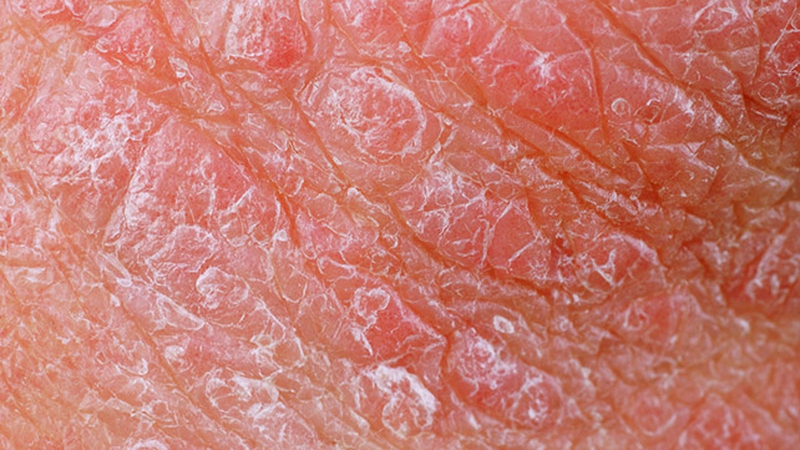Characterized by patches of abnormal skin, psoriasis is an autoimmune disease causing skin cells to grow rapidly on the surface of your skin. New cells grow when the old ones are still there, and this leads to the development of thick, flaky, itchy patches. What causes psoriasis? Is there something wrong with your skin? Actually, there is a lot going on underneath the surface of your skin. Let's find out more about it.

What Causes Psoriasis?
Psoriasis is a long-lasting autoimmune condition that causes your skin cells to grow rapidly. A number of factors may contribute to this condition. But for the specific cause, there is no sure answer. But it is believed that your genetics play a role here. Genes are bits of your DNA and contain instructions for your cells. They control several things, including the color of your hair and eyes, the way you taste certain things, and many other ways your body works. Some genes become active at certain times only. There are genes that control your immune system, but any mix up here can send wrong signals to your immune system, making it to attack healthy cells instead of invaders. It produces inflammation in the body and turns your skin cells into an overdrive. This leads to psoriasis. Scientists have identified 25 genes that are different in people who have this skin condition. They are still looking for the main ones that are responsible for psoriasis.
What Could Trigger Psoriasis?
Alcohol
Some studies have found that drinking more alcohol may be a risk factor for psoriasis. If you already have psoriasis, chances are your symptoms will become worse when you drink alcohol. Some studies have shown that people who drink non-light beer experience an increase in psoriasis. You may notice the increase even when you have 2-3 drinks per week.
Exposure to Sunlight
Spending too much time out in the sun may also trigger symptoms of psoriasis. It is worth mentioning that moderate sun exposure may actually help relieve symptoms in some people, but too much sun can cause complications. If you have sunburns, you will end up dealing with a major outbreak.
Cold, Dry Weather
You may notice your symptoms become worse when you are in a cold, dry climate. When the weather is dry, there will be less moisture on your skin. The things become worse when you are close to heating units. This dryness can lead to a severe outbreak. You will be better off installing a humidifier in your home if the weather is cold and dry.
Stress
Chronic stress can hurt you in more ways than you can imagine. Some studies have found that being under stress can also trigger symptoms of psoriasis. After a period of mental stress, your body has higher levels of T lymphocyte, which increases inflammation in the body and leads to a flare up. To keep psoriasis under control, it is extremely important to manage stress better. Meditation and exercise can help, and so can relaxation exercises.
Obesity
People who are obese are at a greater risk of developing psoriasis. If you have psoriasis, gaining weight can make you deal with regular flare-ups. Some studies have found that a low-calorie diet may be linked to decreased flare-ups.
Smoking
You should stop smoking if you have psoriasis. Not only can tobacco make your psoriasis symptoms worse, it can also cause all sorts of health related problems. Avoid it!
Physical Injury to the Skin
A burn, cut, or scrape can trigger a flare, so you need to take special care of your skin when you have psoriasis. New skin lesions can develop on injured skin areas. It is important to treat your injured skin right away and keep it clean all the time to prevent a psoriasis flare-up.
How Can Psoriasis Affect Your Life?
When you develop psoriasis, you have to change your lifestyle a bit. The condition can cause physical discomfort and even lead to some disability. You will experience pain and itching that can lower the quality of your life. It can also affect basic functions, such as walking, self-care, and sleep. If you develop plaques on feet and hands, you will not be able to choose certain professions. Caring for family members and taking part in sports would become very difficult as well.
It is also common to feel conscious about your appearance and find it difficult to socialize. Overtime, this would lead to social isolation and depression. You would require medical assistance to treat your symptoms, but medical care is usually very costly and affects your school or employment schedule.
Here is a video to help you learn more about what causes psoriasis and things you can do about it.
View All Comments /Add Comment